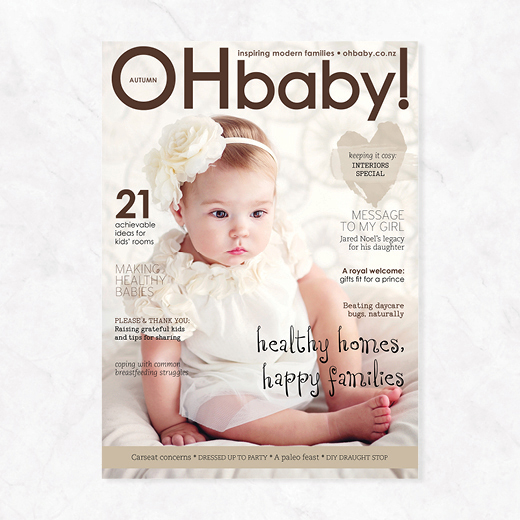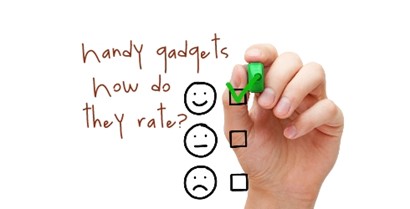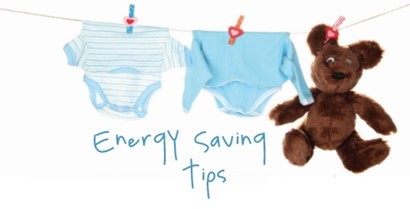How to encourage sharing & turn-taking

Child education expert Miriam McCaleb on how to encourage sharing and turn-taking in your children.
Picture this: it’s Saturday afternoon and a couple of families have got together to enjoy some leisure time. Snacks have been provided, drinks poured. Children are exploring a toy box and adults are beginning to chat. The idyllic scene is short-lived, however. Within minutes, both families’ two year olds want the same toy and are in conflict. Just as that is resolved, the older kids start bickering about who will get the last piece of cake.
Ah yes, screams and grizzles — the sound of a blissful family life! So are these children behaving horrifically or is this an entirely normal scene? Chances are it’s the latter. Sharing is not something we are born knowing how to do.
Humans are social animals yet our children need us to teach them about living in the social world. Sharing is a vital life skill and without it our children would struggle to make friends or work (play) collaboratively.
So what can we do to help children navigate this social world? What can we teach our kids about negotiation? Let’s, ahem, share some ideas about sharing.
We know that very young children learn best by observing us. From the day our babies are born, they are watching and absorbing lessons about everything — how to treat others, how to behave.
For infants and toddlers, this process we call socialisation is much less about direct instruction — “Do this!” “Do that!” is ineffective in the very young. Instead, they learn by watching and listening.
With this in mind, it can be helpful to think hard about our own attitude to sharing. The give-and-take of conversation is an excellent place to start. We take turns to talk, we share the air. I was reminded about this by one of my favourite baby colleagues, Sandy Cassells. She is an ex-university lecturer working in family and parent support. A mother of four and now a grandmother, Sandy has been paying attention to children for decades.
She reminded me that adults teach young children about turn-taking every time we talk. There are lessons bestowed by how well (or not) we obey the rules of give and take in conversation.
“This includes very young babies,” says Sandy. “Tiny infants just a few weeks old will want to join in the conversation with coos and vocalisations. Are adults leaving them room to do so?”
Are we good turn-takers? How do we model the negotiation of resources?
I had to cringe when I thought hard about this. Just recently, I argued with my husband in a most petty way, in front of my kids. About what? About whose car would be parked under cover.
For goodness sake, I tell myself now, set a better example.
So what? We have two vehicles, one carport. They are both “our” cars, it is “our” carport. When I married that guy we both vowed, “All that I have I share with you.”
Nothing about this interaction should involve grasping or competition. Instead, knowing our kids were watching, I could have embraced an opportunity to model gracious turn-taking. I wish I’d said: “Sure, babe. I parked under there all week. Your turn!”
Seriously! Talk about a first-world problem. Poor little me. I might have to walk through the air from my heated car to my heated house, oh boo hoo. Reframing that whole incident reminded me that it’s a blessed coincidence to have been born at a time when the combustion engine allows us to drive, and in a place where we can work and prosper in a peaceful environment. We have two comfy, reliable cars and a cosy home. Why am I teaching my kids to squabble with someone I love dearly for resources of which there are plenty?
Teaching generosity and gratitude can involve overt action, like correcting yourself after the type of ungracious behaviour I displayed over the carport. Mummies can be silly too, you know.
Also, you might try subtle tweaks, such as dishing dinner at the table instead of making plates in the kitchen. This provides opportunities to talk about “sharing this dish of lasagne”. As well as modelling the language of sharing and gratitude, this exercise should create positive associations around the act of sharing. (Food! Family! Delicious!)
Sandy Cassells also sees this as a place to model negotiation: “Who’s going to get that last roast potato? How will you work that out? After all, sometimes you win, sometimes you lose. Can we all practise being okay with that?”
The difference between sharing and turn-taking
I know, this may seem like just semantics, but if we’re unclear about our expectations then how can our children comply with our wishes?
Basically, if you can cut it in half, it’s sharing. If we need to go one at a time, it’s turn-taking. So, you can share a pie but not a purse. A box of felt pens can be shared, but with an individual pen you gotta take turns.
I was a kindergarten teacher and would observe children struggling to negotiate who’d get the last police hat in the dress-ups. Often a well-meaning adult would instruct: “Share!” But how? It’s impossible. Much more helpful would be to prompt taking turns, which gives a tangible place to begin negotiations.
Lots of praise
We can point out when others are sharing, for example, with characters in books or kids at the park. (“Doesn’t it look as if they’re having fun taking turns with that ball?”)
Similarly, praise your child for attempts to share, even as beginners. A child as young as 18 months can be celebrated: “I love how you let Molly have a turn with the balloon! And then it was your turn again. It looked like such fun!”
The egocentric toddler
In developmental terms, toddlers are described as egocentric. As parents of toddlers will recognise, this means that they genuinely believe themselves to be at the centre of the universe.
If you were the very axis of the solar system, why would you share? Nobody else or their needs even matter! This theory fits with what Sue Gerhardt, author of the excellent book Why Love Matters, writes regarding the development of the orbitofrontal cortex — the brain’s home of empathy. It would seem we are not concerned with, and barely aware of, others’ needs until late toddlerhood (about age three). Let this developmental reality modify any hope that toddler play dates will flow smoothly.
This also further explains the difference in the way that toddlers play (parallel play, which is playing alongside a peer, often kind of ignoring them) compared with the play of three or four year olds, which is all about socialising and collaborating.
How can we help them learn about sharing?
• Play exaggerated turn-taking games with toddlers. Try simple tea parties (“Some for you, some for me, some for teddy!”) or explicitly describe what’s happening as you play together, such as, “Now it’s my turn to drive the train around the track, then it’ll be your turn. That was my turn, now it’s your go! Choo choo!”
• Also, think of toddler’s play resources in terms of collections of things. If your toddler is no longer putting everything in his mouth a box of plastic milk bottle lids is an awesome toy, as is a bucket of shells or a purse full of small wooden blocks. These collections speak to the way that toddlers like to play (they love toting wee bags around and popping their collections in and out of things). Collections also make negotiations much easier than competing for, say, one big truck or a single desired baby doll.
• Look for turn-taking games and songs. My 16 month old loves nothing more than a wee song that goes: “Daddy’s got the hat. Now whaddya think of that? Daddy’s got the hat! He takes it off and gives it to Joseph! Whaddya think of that? Now Joseph’s got the hat”... Any time, any place!
Brain change
Things start to click and change for three year olds. There seems to be a brain change explaining their readiness for social connectedness and peer relationships. It also makes sense of the way that their play needs to shift. They seem ready to engage with others in a new way.
Children of this age have a beginning awareness of how others feel and how their own behaviour might affect other people. This can be useful when discussing sharing, whether in life, in books or on TV. (“Oh, I wonder how that would feel, if you didn’t get to share the birthday cake?”)
Prepare for play dates with reminders like, “When Tawhiri comes this afternoon, we could make some playdough for you to share with him. Or you might take turns with the diggers in the sand pit?”
I think it’s entirely appropriate for part of the play date prep to include putting away a couple of special toys that your child mightn’t be ready to share. We do this ourselves. You might say to your girlfriend: “Sure you can borrow something to wear to your work do!”, even as you think, “Anything you like, just not that sparkly vintage number or my new suede boots.”
Same goes for kids. They get to save a little something just for them.
It’s important to acknowledge that it’s hard to wait your turn. It is not a symptom of deviance or cause for major concern if your child doesn’t enjoy waiting while someone else has a turn. Who really does enjoy waiting? Queue at the post office, anyone?
Here’s another hint from Sandy. When she’s supporting her toddler grandson in waiting for his turn, she’ll just say aloud, “Waiting, waiting, waiting...” Try it. You might just be surprised how effective this is for pulling you both into the present moment.
I’d like to share one more idea to support this skill. Dr Shari Barkin is an academic paediatrician at Vanderbilt University School of Medicine in Nashville, Tennessee. Her research has included work in family violence prevention and she had encouraging results when she provided families with an egg timer. As well as being useful for “family time-outs” and “intentional media use” (knowing when to turn the telly off) an egg timer is a useful way to monitor turn-taking and to keep things completely fair. “Three minutes each. I’ll set the timer.” It works.
Small children often wear their hearts on their sleeves. They may protest with aplomb about perceived injustices when it comes to sharing. But be honest: do you always want to share that chocolate bar or would you cheerfully demolish it all by yourself?
Ask yourself (okay, myself...) would you secretly rather have the under-cover carpark every single time? It’s not always easy to share, but it is worth learning how to do it.
Miriam McCaleb is a former university lecturer who relishes her new life of motherhood and writing. You can read more of her wisdom at baby.geek.nz
@maria_foto via Twenty20

AS FEATURED IN ISSUE 25 OF OHbaby! MAGAZINE. CHECK OUT OTHER ARTICLES IN THIS ISSUE BELOW

















